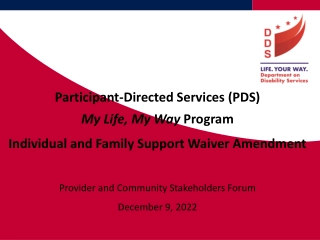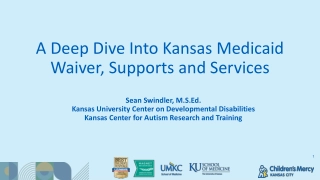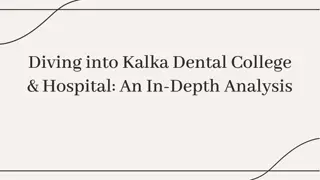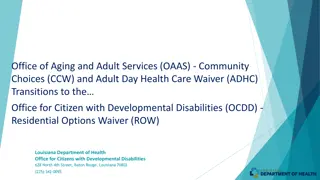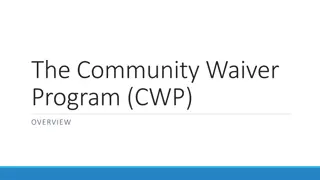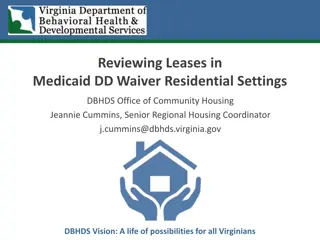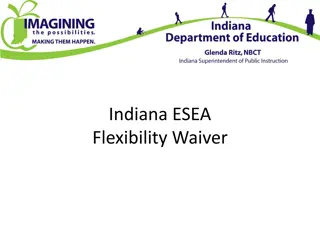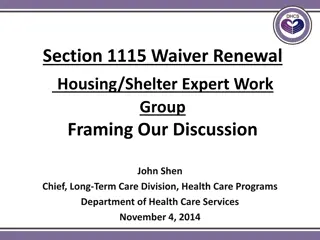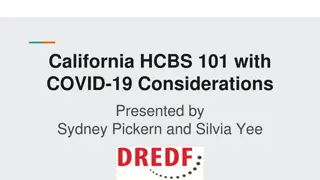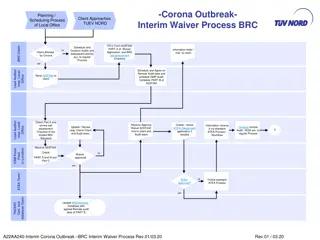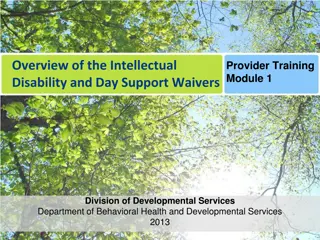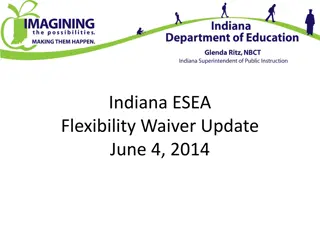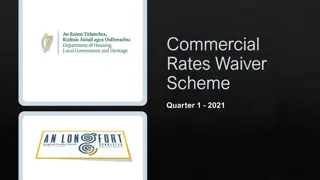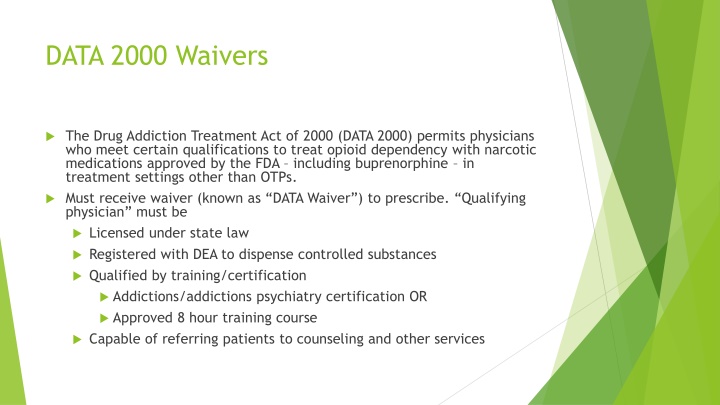
Waivers for Opioid Dependency Treatment
Learn about the Drug Addiction Treatment Act of 2000 (DATA 2000) and the Comprehensive Addiction and Recovery Act (CARA) that allow physicians, nurse practitioners, and physician assistants to obtain waivers for treating opioid dependency with medications like buprenorphine. Explore patient limits, requirements, and how to apply for waivers to provide crucial addiction treatment services.
Download Presentation

Please find below an Image/Link to download the presentation.
The content on the website is provided AS IS for your information and personal use only. It may not be sold, licensed, or shared on other websites without obtaining consent from the author. If you encounter any issues during the download, it is possible that the publisher has removed the file from their server.
You are allowed to download the files provided on this website for personal or commercial use, subject to the condition that they are used lawfully. All files are the property of their respective owners.
The content on the website is provided AS IS for your information and personal use only. It may not be sold, licensed, or shared on other websites without obtaining consent from the author.
E N D
Presentation Transcript
DATA 2000 Waivers The Drug Addiction Treatment Act of 2000 (DATA 2000) permits physicians who meet certain qualifications to treat opioid dependency with narcotic medications approved by the FDA including buprenorphine in treatment settings other than OTPs. Must receive waiver (known as DATA Waiver ) to prescribe. Qualifying physician must be Licensed under state law Registered with DEA to dispense controlled substances Qualified by training/certification Addictions/addictions psychiatry certification OR Approved 8 hour training course Capable of referring patients to counseling and other services
Nurse Practitioners/Physicians Assistants Comprehensive Addiction and Recovery Act (CARA): NP and PA can also receive waivers Must meet/maintain all state law requirements for prescribing and receive 24 hours of approved training Hard limit of 30 patients per prescriber Open question: Indiana requires collaborative arrangement with physician to review 5% of charts with a prescription. Does the collaborating physician also need waiver?
Patient Limits Default for waiver is 30 patients per prescriber Physicians can apply to increase to 100, then 275 Disclaimer: no opinion is offered as to the wisdom or practicality of this approach Increase requires one year at the lower limit, additional credentialing (certification in addiction medicine or addiction psychiatry) AND proof of a Qualified Practice Setting Increase is good for a three year period, must file to renew
Qualified Practice Setting Provides professional coverage for patient medical emergencies during hours when the practice is closed. Provides access to case management services for patients, including referral and follow-up services for programs that provide or financially support medical, behavioral, social, housing, employment, educational, or other related services. Uses health information technology if it is already required in the practice setting. Is registered for their state prescription drug monitoring program where operational and in accordance with federal and state law (INSPECT program) Accepts third-party payment for some services, though not necessarily for buprenorphine-related services and not necessarily all third-party payers Have adopted a diversion control plan
How to Apply/More information https://www.samhsa.gov/programs- campaigns/medication-assisted-treatment/training- materials-resources/buprenorphine-waiver

